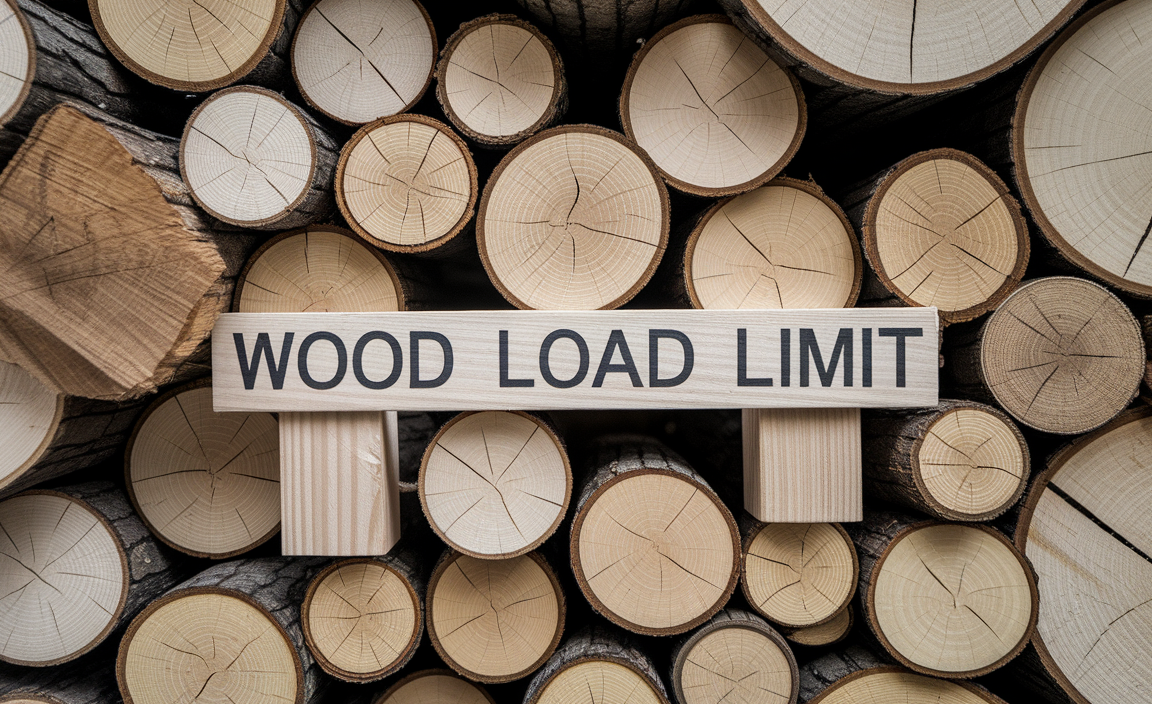Have you ever wanted to create something special with your own hands? Building a wooden box can be a fun and simple project. Imagine crafting a box to store your favorite toys or treasures. It’s a great way to learn woodworking skills!
So, how do you make a wooden box? It might seem tricky, but it’s easier than you think. With just a few materials and some basic tools, you can make a beautiful box in no time. Plus, it’s a fantastic way to express your creativity!
Did you know that making items from wood can be very rewarding? You get to turn a pile of materials into something useful. Whether for storage or a gift, a wooden box is perfect for every occasion.
Follow these simple steps to go from beginner to pro in no time. Let’s dive in and discover how to make a wooden box that you’ll be proud of!
Table of Contents
How To Make A Wooden Box? Simple Steps To Go
![How To Make A Wooden Box? [Simple Steps To Go] How To Make A Wooden Box? [Simple Steps To Go]](https://nailerguy.com/wp-content/uploads/2025/06/How-To-Make-A-Wooden-Box-Simple-Steps-To-Go.jpg)
How To Make A Wooden Box? [Simple Steps To Go]
Creating a wooden box can be a fun project. Imagine holding a beautifully crafted box made by your own hands! Start by gathering your materials, like wood planks and nails. Then, measure and cut the pieces carefully. Assemble the parts and finish with sanding to smooth the edges. Did you know that making things by hand boosts creativity? With these simple steps, anyone can enjoy woodworking and create unique gifts or storage!Understanding the Materials
Types of wood suitable for box making. Tools required for constructing a wooden box.Choosing the right materials is key for box-making. Softwoods like pine and cedar are popular. They’re easy to work with and smell nice, too! For something sturdier, hardwoods like oak or maple work well. Just remember, don’t use splintery woods—it’ll hurt your fingers!
Now, let’s talk tools! You’ll need a saw (that cuts, not one that sings!) and screws for assembly. A sandpaper helps smooth rough edges. Finally, grab a measuring tape because you don’t want your box to be a funny shape!
| Type of Wood | Pros | Cons |
|---|---|---|
| Pine | Lightweight, easy to cut | Less durable |
| Cedar | Good smell, resistant to decay | Can be expensive |
| Oak | Strong, beautiful grain | Heavy, harder to cut |
| Maple | Very durable, great finish | Prone to warping |
Planning Your Wooden Box Design
Determining the dimensions and style of the box. Sketching your design and planning for joints.First things first, think about what size your wooden box should be. Will it hold toys or trinkets? Grab a ruler and measure! Next, sketch your design on paper. Add circles, squares, or even doodles of happy faces if you like. Don’t forget to plan for the joints! They hold everything together like glue, but without the stickiness. Here’s a simple table to help you visualize your plans:
| Dimension | Style | Joint Type |
|---|---|---|
| Length | Square | Dove Tail |
| Width | Rectangular | Butt Joint |
| Height | Custom | Box Joint |
Keep it simple and fun! Your imagination is the limit. Happy building!
Preparing the Wood
Measuring and cutting the wood pieces. Sanding edges for smoothness.Start by measuring your wood pieces carefully with a ruler. Be precise; this ensures a good fit. Next, use a saw to cut each piece. Always cut along the line for accuracy. After cutting, it’s time to smooth the edges. Use sandpaper to rub away rough spots. This makes your box safe and nice to touch. Remember, smooth edges add to a beautiful finish.
What tools do I need to measure and cut wood?
You will need a ruler, a pencil for marking, and a saw to cut the pieces. Sandpaper will help make the edges smooth.
Joining the Pieces Together
Different joining techniques (dovetail, finger joints, etc.). Stepbystep guide on assembling the box.Making a wooden box is like putting together a fun puzzle! To join the pieces, you can use different methods. Dovetail joints are strong and look great, while finger joints are perfect for a fast assembly. Here’s a simple way to assemble your box:
| Step | Action |
|---|---|
| 1 | Align all pieces carefully. |
| 2 | Apply wood glue on the edges. |
| 3 | Join the pieces using your chosen technique. |
| 4 | Clamp the box and let it dry. |
| 5 | Sand the edges for a smooth finish! |
And voilà, your box is ready! If only everything in life could join together as easily as wood!
Finishing Touches
Applying wood glue and clamps correctly. Sanding and preparing for finishing.Once your box is built, it’s time to make it shine! First, apply some wood glue on the joints and hold them tight with clamps. Who wouldn’t want a box that sticks together better than your favorite snack? After that, grab some sandpaper and smooth out the edges. No one likes splinters poaching their hands! Make sure to sand until the box feels as smooth as a cat’s belly.
| Step | Details |
|---|---|
| Glue | Apply wood glue generously to joints. |
| Clamp | Use clamps to hold pieces until dry. |
| Sanding | Smooth all edges to avoid splinters. |
Applying Stains and Varnishes
Selecting the right finish for your wood type. Techniques for applying stains and varnishes evenly.Choosing the right finish for your wood can feel like picking toppings for a pizza. Do you want a shiny look or a natural feel? Different woods like to dress up in different outfits. Some look great in stains, while others prefer a coat of varnish. To apply either, use a clean brush or cloth. Spread it evenly, like buttering toast. Don’t forget to buff it gently—no one likes a sticky situation!
| Wood Type | Best Finish |
|---|---|
| Oak | Oil-based stain |
| Pine | Water-based stain |
| Walnut | Clear varnish |
Common Mistakes to Avoid
Pitfalls beginners often encounter. Tips for troubleshooting during the process.Starting your woodworking adventure can be fun, but mistakes can pop up like Jack-in-the-boxes! One common blunder is skipping the measuring part; remember, “measure twice, cut once” is not just a catchy phrase. Another pitfall is using the wrong glue. Not all glues like to play nice with wood. If you find things aren’t lining up, don’t panic! Just grab a clamp and hold it together while the glue dries. Here’s a quick table of common errors and fixes:
| Common Mistake | How to Fix It |
|---|---|
| No measurements | Re-check your work |
| Wrong glue | Use wood-specific glue |
| Loose joints | Clamp and let it dry |
So, keep these tips close, and you’ll be on your way to creating a fantastic wooden box without too much fuss!
Advanced Techniques for Customizations
Ideas for adding carvings or engravings. Suggestions for hardware and decorative elements.Want to make your wooden box truly special? Carvings can add flair! Think about adding fun shapes or initials. You can also explore laser engravings for super fine details. For hardware, cool hinges or funky handles give character. Why not jazz it up with colorful knobs? Here’s a quick look at some ideas:
| Customization Idea | Description |
|---|---|
| Carvings | Shapes or initials for a personal touch. |
| Engravings | Fine details using laser tech. |
| Hardware | Fun handles and unique hinges. |
Remember, the crazier, the better! Get creative and make it your own!
Conclusion
In conclusion, making a wooden box is fun and easy! You need basic materials, tools, and a simple plan. Follow the steps carefully, and you’ll create your own box in no time. Remember to measure and cut accurately for the best results. Now, go ahead and try it! For more projects, keep exploring woodworking resources and tips.FAQs
What Materials Do I Need To Make A Wooden Box?To make a wooden box, you need some pieces of wood. You will also need nails or screws to hold the wood together. Don’t forget some wood glue for extra strength. Lastly, grab sandpaper to smooth the edges. You might want a paint or stain to make it look nice too!
What Are The Basic Steps Involved In Constructing A Wooden Box?To make a wooden box, first gather your materials like wood, nails, and glue. Next, cut the wood pieces to the right size. Then, you put the pieces together using glue and nails to hold them in place. After that, you can sand the edges to make them smooth. Finally, you can paint or decorate your box if you want!
How Can I Ensure My Wooden Box Has Sturdy Joints?To make sure your wooden box has strong joints, you can follow a few simple steps. First, choose good quality wood that is straight and dry. Next, cut the pieces carefully so they fit together well. You can use wood glue along with screws or nails to hold the pieces tight. Lastly, always check the joints to make sure they are secure before using your box.
What Types Of Wood Are Best Suited For Making A Wooden Box?The best woods for making a wooden box are pine, oak, and cedar. Pine is light and easy to work with. Oak is strong and looks beautiful. Cedar smells nice and helps keep bugs away. You can choose any of these woods for your box!
How Can I Finish Or Decorate My Wooden Box Once It’S Assembled?You can finish your wooden box by sanding it smooth. Then, you can paint it or use wood stain for color. Try adding stickers or designs with markers for fun decorations. You might also glue on little toys or beads. Finally, you can seal it with clear varnish to protect your work.





